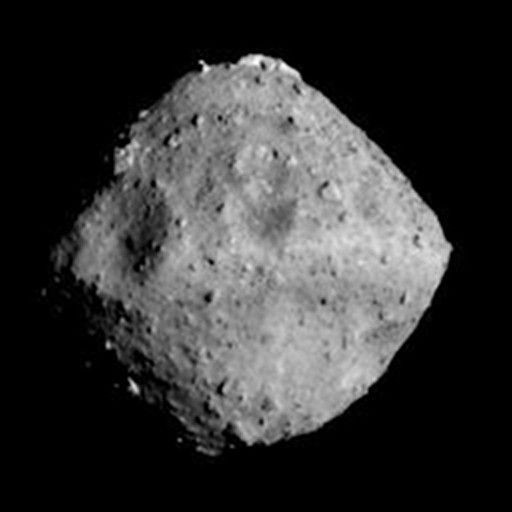Asteroid Ryugu Offers Important Lesson On Planetary Defense

Studies conducted on Ryugu revealed that Earth’s planetary defenses may not work when it comes to deflecting asteroids. Based on the studies, trying to prevent an asteroid like Ryugu from colliding with Earth could have more devastating effects on the planet.
The studies on Ryugu were carried out through Japan’s Hayabusa2. This spacecraft has been observing the asteroid since its launch in 2014. It will continue studying the asteroid until December.
Although Hayabusa2 observes the asteroid several miles from its surface, it was able to get really close to Ryugu through its payload the Mobile Asteroid Surface Scout (MASCOT). The MASCOT lander touched down on Ryugu in October 2018 and studied the asteroid’s surface for about 17 hours before its battery ran out.
Through MASCOT, researchers learned that Ryugu’s surface is mainly composed of rocks with varying sizes. After analyzing the rocks, the researchers concluded that Ryugu is a very fragile asteroid.
In a study led by Ralf Jaumann of the DLR Institute of Planetary Research in Berlin-Adlershof, the planetary researcher warned that due to the fragile nature of Ryugu, deflecting it away from Earth could have serious consequences.
In the event of an asteroid impact, NASA and other space agencies plan to deflect an asteroid either by intentionally crashing it with a spacecraft or by firing off a nuclear missile. However, Jaumann noted that since Ryugu is very fragile, these methods might only cause the asteroid to break up into numerous large pieces. This means that instead of a centralized impact, Earth would experience multiple asteroid collisions.
“If Ryugu or another similar asteroid were ever to come dangerously close to Earth and an attempt had to be made to divert it, this would need to be done with great care,” Jaumann said in a statement. “In the event that it was impacted with great force, the entire asteroid, weighing approximately half a billion tons, would break up into numerous fragments.”
“Then, many individual parts weighing several tons would impact Earth,” he added.
A different study published in July in Nature Astronomy also noted that Ryugu is composed of porous material. Although the study noted that the asteroid would most likely burn up in Earth’s atmosphere due to its fragility, there’s also a chance that it will break up into numerous pieces before hitting the planet’s surface.
© Copyright IBTimes 2024. All rights reserved.





















